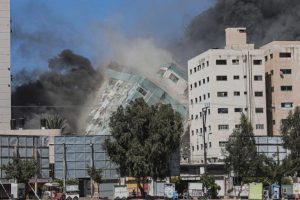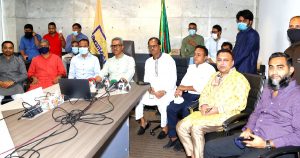As many as 592,000 people could be living in “modern slavery” in Bangladesh, a condition of servitude broadly defined in a new global study as forced and state-imposed labour, sexual servitude and forced marriage.
Bangladesh ranks 92nd on the Global Slavery Index that tracks 167 countries worldwide. The estimated proportion of population living in “modern slavery” in Bangladesh is 3.67 per 1,000 people.
The Global Slavery Index, published on Thursday by Australia’s Walk Free Foundation, describes modern slavery as a complex and often hidden crime that crosses borders, sectors and jurisdictions.
The survey highlighted how conflict and government repression are the main drivers of a crime estimated to affect more than 40 million people worldwide.
The report estimates most victims of modern slavery live in Asia. North Korea has the highest prevalence of modern slavery globally, with one in 10 of the population, or 2.6 million people, victims of modern slavery.
India was home to the largest total number with an estimated 8 million slaves among its 1.3 billion population, according to Walk Free’s 2018 calculation.
Two years ago, the index showed 18.3 million people living in modern slavery in India. The difference is due to changes in methodology, Walk Free said, reflecting ways of counting people enslaved on any given day or over a longer time period.
China, Pakistan, North Korea and Nigeria rounded out the top five nations with the largest number of slaves, accounting for about 60 percent of victims globally, according to Walk Free.
But North Korea had the highest percentage of its population enslaved, with one in 10 people are in modern slavery and “the clear majority forced to work by the state”, the index said.
Researchers interviewed 50 North Korean defectors who spoke of long hours and inhumane conditions in forced unpaid labour for adults and children in farming, construction and road building.
“This index makes us visible,” said Yeon-Mi Park, a defector who spoke at a news conference at the United Nations headquarters.
“These people simply were born in the wrong place, and that’s what they are being punished for,” she said, describing being trafficked into China where she was sold as a child bride.
Another defector Jang Jin-Sung said North Koreans do not consider themselves slaves.
“They’ve been indoctrinated all their lives to think that whatever they do for the state is a good thing,” he said.
“Modern slavery is a first-world problem,” said Andrew Forrest, a co-founder of Walk Free. “We are the consumers. We can fix it,” he added.
A third, or 15 million, of victims of modern slavery enter through forced marriage, an issue that disproportionately affects women and girls, The Guardian reports.
“Overall, the cultural practice of forced marriage places women at greater risk of exploitation, and the potential subjection to a life of servitude, financial bondage and sexual exploitation that comes with modern slavery,” the report said.
The United States, one of the most advanced countries in the world, has more than 400,000 modern slaves working under forced labour conditions.
The report also argues the US figures are in themselves deceptive because the US exacerbates the global slavery problem by importing products, including laptops, computers, mobile phones, garments, fish, cocoa and timber, at risk of being produced through forced labour.
The group recommends making forced marriage illegal, creating a minimum marriage age of 18, a national database of trafficking and forced labour cases, and working to improve supply-chain transparency to help bring the US numbers down.
It estimates China is by far the largest source of at-risk goods, with the United States importing $122bn of electronics and clothing from the country. Vietnam was the second largest source with $11.2bn, and India third with $3.8bn.
Slavery is likely more widespread than the research suggests, activists and experts say. The report noted gaps in data from Arab states, as well as a lack of information on organ trafficking and the recruitment of children by armed groups.
source: bdnews24.com




